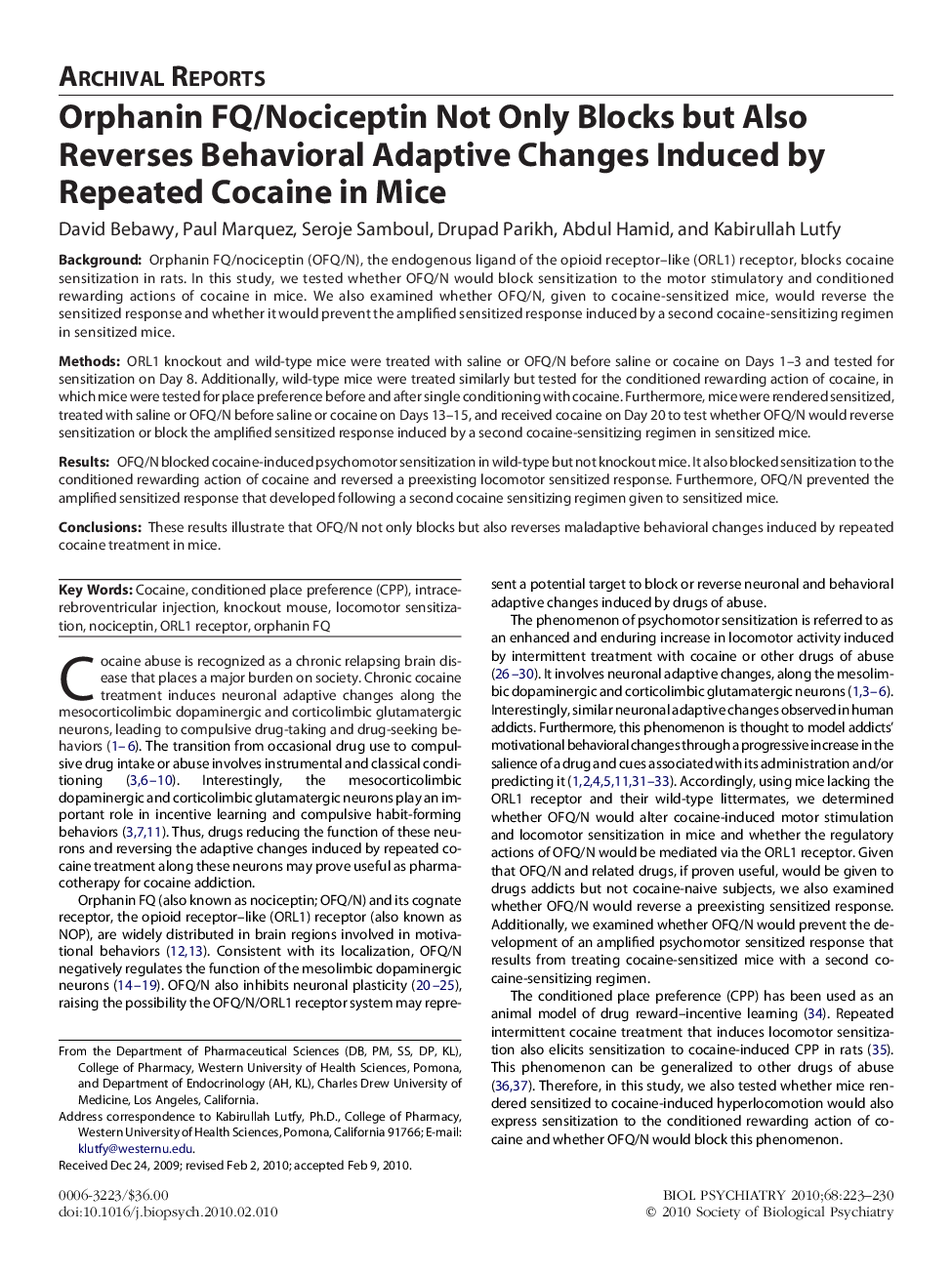| Article ID | Journal | Published Year | Pages | File Type |
|---|---|---|---|---|
| 6228947 | Biological Psychiatry | 2010 | 8 Pages |
BackgroundOrphanin FQ/nociceptin (OFQ/N), the endogenous ligand of the opioid receptor-like (ORL1) receptor, blocks cocaine sensitization in rats. In this study, we tested whether OFQ/N would block sensitization to the motor stimulatory and conditioned rewarding actions of cocaine in mice. We also examined whether OFQ/N, given to cocaine-sensitized mice, would reverse the sensitized response and whether it would prevent the amplified sensitized response induced by a second cocaine-sensitizing regimen in sensitized mice.MethodsORL1 knockout and wild-type mice were treated with saline or OFQ/N before saline or cocaine on Days 1-3 and tested for sensitization on Day 8. Additionally, wild-type mice were treated similarly but tested for the conditioned rewarding action of cocaine, in which mice were tested for place preference before and after single conditioning with cocaine. Furthermore, mice were rendered sensitized, treated with saline or OFQ/N before saline or cocaine on Days 13-15, and received cocaine on Day 20 to test whether OFQ/N would reverse sensitization or block the amplified sensitized response induced by a second cocaine-sensitizing regimen in sensitized mice.ResultsOFQ/N blocked cocaine-induced psychomotor sensitization in wild-type but not knockout mice. It also blocked sensitization to the conditioned rewarding action of cocaine and reversed a preexisting locomotor sensitized response. Furthermore, OFQ/N prevented the amplified sensitized response that developed following a second cocaine sensitizing regimen given to sensitized mice.ConclusionsThese results illustrate that OFQ/N not only blocks but also reverses maladaptive behavioral changes induced by repeated cocaine treatment in mice.
